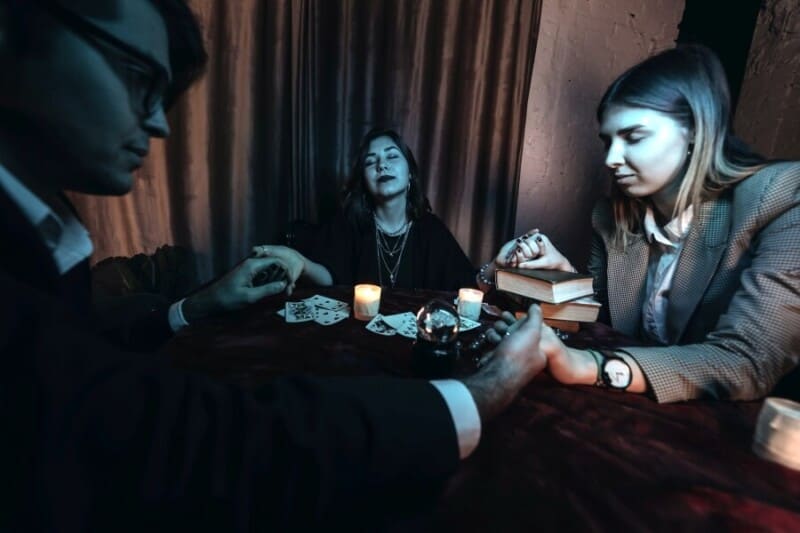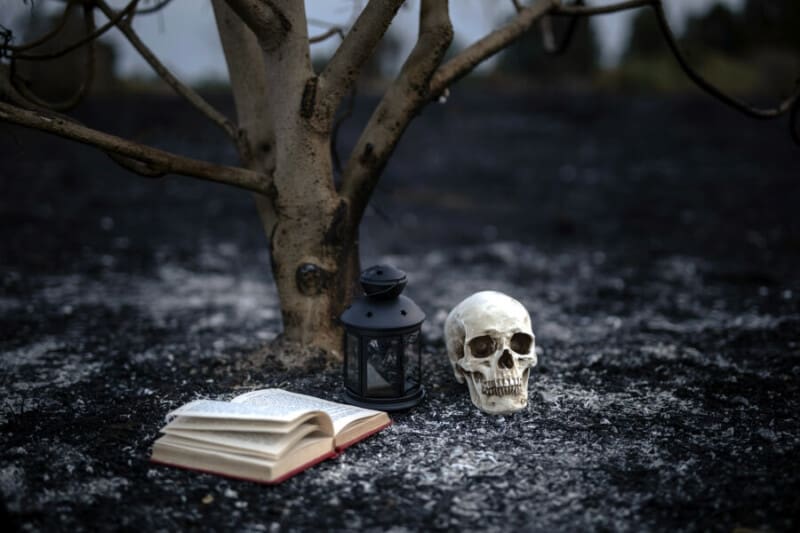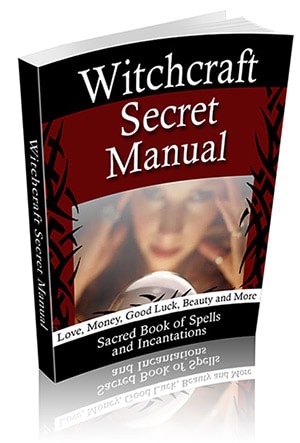Welcome back to our series on magic, magicians, and the world of illusion!
Our next is going to take a slightly different turn; instead of focusing on performance magic tricks and theatrics, we are going to look at one of the more controversial uses of magic throughout history.
Black Magic is often understood as a “bad” form of magic. Its practitioners are often using curses and hexes to gain an advantage over others to achieve their goals.
That’s right, we’re going to take a look at black magic and its historical background, purposes, and philosophies.
Black Magic and the Left-Hand/Right-Hand Paths
Black magic has a complicated history, one that is intertwined with numerous historical figures, settings, and different religions.
To oversimplify it would be to call black magic the “bad” form of magic, but it’s obviously a bit more complex than that.
Black magic originated under the ancient concept of the Left Hand Path and the Right Hand path, a concept that was originated to a large extent by ancient Hinduism, Buddhism, and Jainism.
In essence, the Left-Hand Path (with which black magic is generally associated) is the “evil” path, while the Right-Hand Path (which is also associated with white magic) is the “good” path.
Christianity has a variation on these paths as well, with the way “up” (the Right-Hand Path) leading to Heaven and salvation, while the way “down” (the Left-Hand Path) leads to Satan and damnation.
But just like so much that is misunderstood and oversimplified in situations like these, the original dichotomy between the LHP/Black Magic and the RHP/White Magic wasn’t really about good vs. evil; it was about individualist philosophy and action and the rejection of certain societal norms and rules (Left-Hand Path) vs. working for the collective good, healthy respect of (specifically religious) authority and rules, and a respect for all things that are “right” for society.
In short, the followers of the Left-Hand Path were individualists who thought freely, challenged authority and tradition, and broke from what was considered normal; as we’ve seen many times in history (i.e. the Salem Witch Trials), traditional religious thinkers and theocratic-style governments usually have very serious issues with people who challenge them, leading to the individualists being branded as “evil” and “satanic” and shunned by society.
But really, most followers of the Left-Hand Path have never traditionally meant to be “evil” but instead free-thinking and individualistic; indeed, for many modern Satanists (specifically in the Church of Satan), one of the primary values they hold is the “exultation of the self.”
That is, it is more important to believe in oneself and do what you believe is right and holds meaning to you rather than simply bend to the wills of society and to rebel against tradition.
As Beyer’s article (linked above) notes, when many Satanists make their famous “Hail Satan!” call, what they are really saying is something more along the lines of “Hail me!” or “Hail to what I believe in, not what society says I should.”
What is Black Magic and How is it Practiced?
So now that we know a little bit more about the history of black magic, let’s take a look more specifically at what it is and how it’s done.
As could be surmised from the previous section, spells that are associated with black magic are ones that are meant to restrict the actions of others or even harm them (i.e. hexes), or to make contact with – and utilize the powers of – the spirit realm in order to achieve a “negative” purpose.
I put “negative” in quotations because, much like stated previously, when you really take a closer look at what’s happening with the purposes and intentions of black magic, it’s not necessarily about harming others for no reason; generally, black magic spells are meant to increase one’s own capacities and help you succeed or do better… which of course can be linked to harming others (it’s complicated).
For instance, let’s say you have a big interview coming up and you know the person you are competing against is just as good as you, if not better.
So, if you were a practitioner of black magic, you might case a hex on them to “curse” them so they don’t do well in the interview.
In essence, yes you ARE harming the other person, but the reason you’re doing it is that you want to improve your own chances; if you weren’t going for the same position and as such had no vested interest in the other person’s performance, you wouldn’t cast a hex on them in the first place.
Makes sense?
In addition to curses/hexes, there are other types of spells that are associated with black magic.
Summoning/conjuring spirits
One of the most famous types of spells associated with black magic is summoning/conjuring spirits (occasionally demons) from the spirit realm to aid you for usually nefarious purposes; this is also associated with necromancy (raising from the dead).
If you’re not looking at bringing a demon or spirit into our world from the spirit world, then the ever-popular seance can be considered a form of this kind of magic, where people gather around to communicate with the spirits of those who have passed on from this world.

Immortality Spell
Another form of black magic that has been traditionally practiced in black magic is the immortality spell.
With this spell, since life is obviously something that ends after a finite amount of time, some black magic practitioners have been known to sacrifice a victim in order to drain their life force in order to extend the life of the spellcaster (or in some cases, make them immortal).
This is often a trope seen with stories about vampires and witches (functioning as a major plot point perhaps most notably in the cult Halloween classic Hocus Pocus).

True Name Spell
Another of the more prominent type of spells associated with black magic is the true name spell.
In this spell, the spellcaster is able to determine a person/being/spirit/etc.’s “true name” (that is, the name that is most closely associated with that being’s essence), and in doing so is able to gain full control over the subject of the spell (think like the story of Rumpelstiltskin, but with magic).
This is often done by black magic practitioners when summoning demons, though the practitioner must be wary that summoning a demon may have nasty side effects, for obvious reasons.
Before we move on, I have two side notes regarding this topic.
The first is that, while black magic and the spells associated with them are firmly entrenched in certain historical records, obviously there is not much in contemporary sources that have shown actual demons being summoned, or actual black magic “working” in the traditional sense.
This isn’t to say that black magic “isn’t real” per se, but that if any has ever truly seen a demon being summoned or the like, I haven’t found much peer-reviewed or reliable material.
The second note: while black magic is closely associated with other, similar types of magic like Voodoo or Wicca (aka witchcraft), they are not the same thing. Similar, but there are enough differences between black magic and Voodoo/Wicca that they cannot really be grouped together.
Who are Some Famous Practitioners of Black Magic?
In relatively modern times, perhaps the two most famous practitioners of black magic are Aleister Crowley and Anton LaVey.
Aleister Crowley was a British occultist and… various other things (he dabbled in quite a bit, most notably having sex with as many men and women as he possibly could), who is most famous for being named “The wickedest man in the world” and was the founder of the Thelema religion.
He founded the religion of Thelema based on the teachings from The Book of the Law, which Crowley said was dictated to him by an angel named Aiwass (not to cast aspersions on someone’s beliefs, but this might be a good time to mention that Crowley was known for his frequent drug use).
Thelema was a kind of proto-Church of Satan and closely aligned with the black magic principles of individualism and in making yourself the best you can, regardless of what society thinks; indeed, one of the main tenets of Thelema is that “Every Man and Woman is a Star,” and that everyone’s life goal should be to find those talents use them to your fullest abilities.
Similarly, Anton LaVey was the founder of the Church of Satan, another religion that – as noted earlier in this article – focused on a person finding their individual value and talents (specifically, talents that mainstream society might not find acceptable) and focusing on becoming the best version of yourself you can be, no matter if it is considered “right” or not.
Some of the tenets that members of the Church of Satan believe in are things like valuing indulgence over abstinence (why to prohibit yourself from enjoying life as much as possible?), doubt everything that is just told to you by authority and do your own legwork to see if something is worth believing or follow, and so on.
The fact that the main ideas behind Satanist theology run so contrary to traditional Judeo-Christian values (i.e. follow the teachings of God and His authority in the Church) has come to make the Church of Satan a target of mainstream religion’s vitriol, but it’s hard to argue that Satanist philosophy does not at least have some sort of merit when looked at through the lens of individualism.
Black Magic: a Summary
Black magic is many things, but at its core, the true meaning of black magic and those practice it and its variations (i.e. the Church of Satan) is that the individual triumphs over all and you should do whatever it takes to make sure you live your best life and enjoy your time here on earth.
Sometimes that manifests itself as refusing to follow traditional society’s rules, and sometimes it involves summoning demons to help you or putting curses on those who get in your way.
But in the end, it’s not about “them,” but instead it’s all about “you.”
Thanks for reading.




